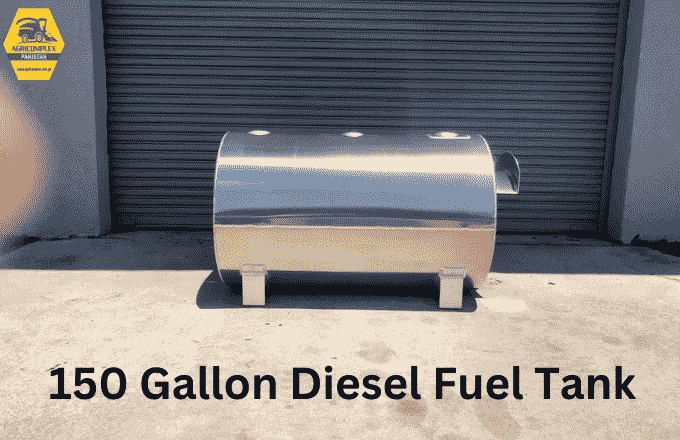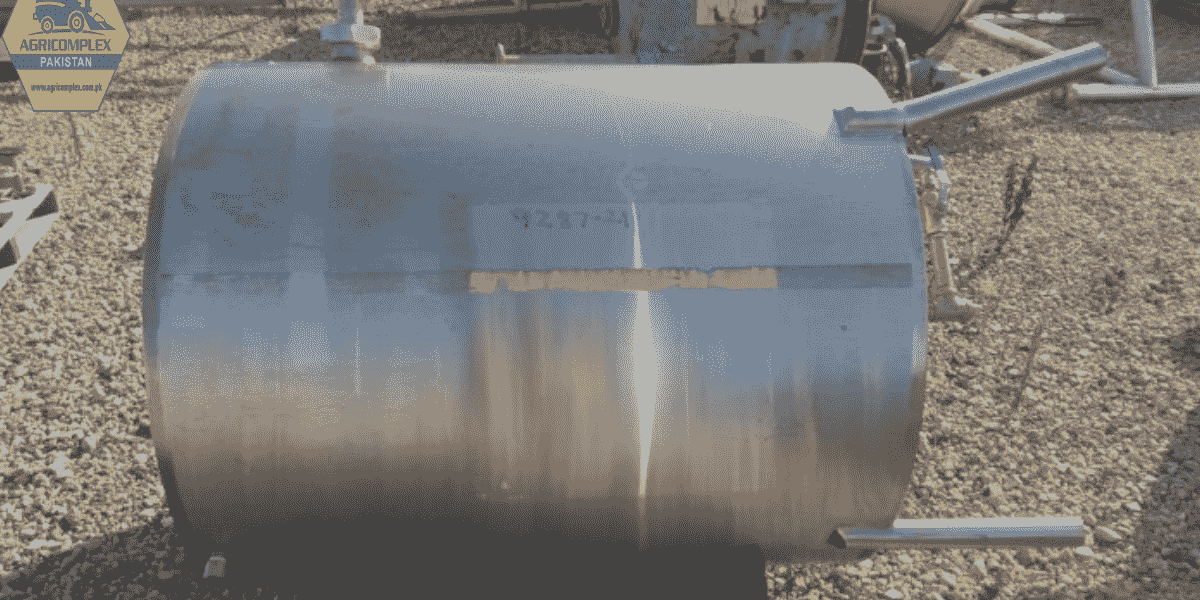Introduction
The 150-gallon fuel tank is a staple in many industries, providing the necessary storage for fuel. Understanding the significance of its size and capacity is crucial for efficient energy use and storage.
Table of Contents
Fuel your adventures with the robust 150 Gallon Fuel Tank, designed to meet the needs of off-road enthusiasts, fleet operators, and anyone requiring extended fuel capacity. This heavy-duty tank is built to withstand the toughest terrains and provide you with peace of mind on long journeys. Crafted from high-quality materials, it ensures durability and longevity, making it a wise investment for those who demand reliability in their vehicles
A 150-gallon fuel tank is what?
A 150-gallon tank is made clearly to store 150 gallons of fuel, whether it be gasoline, diesel, or another kind of fuel. Their size makes them versatile for various applications, from industrial use to farm storage.
Importance of size and capacity in fuel storage
Size matters, especially when it boils down to fuel storage. Having the right capacity ensures continuous operation, reduces frequent refilling, and guarantees that there’s always a reserve when needed.
Distinguishing Diesel: The 150 Gallon Diesel Fuel Tank
Benefits of diesel storage
Diesel fuel offers excellent energy density, making 150-gallon diesel fuel tanks a favorite among truckers and industries. Stored diesel can be utilized for extended periods, ensuring operations don’t halt unexpectedly.
Potential challenges with diesel storage
While diesel is resourceful, it’s also sensitive to contaminants. Proper tank maintenance and regular cleaning are essential to keep the fuel in optimal condition.

Transfer Magic: The 150 Gallon Transfer Tank
How transfer tanks differ from standard tanks
In contrast to regular storage tanks, the 150-gallon transfer tank is designed expressly for moving fuel from one site to another, making refilling in off-the-grid locations simpler.
Safety precautions to consider
When dealing with fuel, safety is paramount. Always ensure that the tank is grounded to prevent static electricity and keep it away from open flames or sparks.
The Compact Choice: 150 Gal Fuel Tank
Why “gal” is a popular abbreviation in the industry
The term “gal” stands for gallon, a commonly used measurement in the fuel industry. The 150 gal fuel tank is a compact way of referring to its 150-gallon counterpart.
Common uses for a compact tank
Due to their smaller size, these tanks are ideal for smaller operations, agricultural use, or backup storage for emergencies.
Efficiency of the 150 Gallon Fuel Transfer Tank
Understanding fuel transfer process
The 150-gallon fuel transfer tank facilitates the smooth transition of fuel with the help of pumps, ensuring no spillage or waste.
The role of pumps in fuel transfer
Pumps is essential for moving fuel efficiently from the tank to vehicles or equipment. An integrated pump system speeds up the refuelling process and ensures precision.
Gas Essentials: The 150 Gallon Gas Tank
Gas vs. diesel: What’s the difference
While both are hydrocarbon fuels, gas evaporates more quickly than diesel, necessitating the 150 gallon gas tank to be more sealed and robust.
Proper maintenance of a gas tank
Regular cleaning, checking for leaks, and ensuring proper sealing are crucial steps in maintaining a gas tank’s longevity.
All About the 150 Gallon Diesel Tank
Characteristics unique to diesel tanks
Diesel tanks, like the 150 gallon diesel tank, often have filters to remove impurities, ensuring that the diesel remains clean and efficient for combustion.
Storing diesel safely
Diesel storage requires a cool, dry place, away from sunlight. Moreover, tanks should be checked periodically for sediment build-up and cleaned accordingly.
Market Dynamics: 150 Gallon Fuel Tank for Sale
Tips for buying a fuel tank
When searching for a 150 gallon fuel tank for sale, always check for certifications, read reviews, and ensure it meets your specific requirements.
What to consider in terms of price
While it’s tempting to opt for cheaper options, remember that with fuel tanks, quality and safety shouldn’t be compromised.
Pumping It Right: 150 Gallon Fuel Tank with Pump
Benefits of an integrated pump
Having a 150 gallon fuel tank with pump reduces the need for external equipment, making the refueling process streamlined and efficient.
Selecting the right pump for your needs
Depending on the intended use, the choice of pump might vary. Ensure it meets the required flow rate and pressure needs.
Strength in Steel: The 150 Gallon Steel Tank
Advantages of steel in fuel storage
Steel tanks are durable, resistant to punctures, and can withstand harsh environments, making the 150 gallon steel tank a robust choice.
Potential concerns with steel tanks
Though steel is strong, it’s susceptible to corrosion. Regular checks and protective coatings can help prolong a steel tank’s life.
Key Features and Benefits
- mple Capacity: With a substantial 150-gallon capacity, these fuel tanks ensure you have a long-lasting supply to keep your equipment and machinery powered.
- Durable Construction: Crafted from robust materials, these tanks are built to withstand rugged environments, protecting your fuel from external elements.
- Secure Storage: The tanks come with locking mechanisms, providing added security and peace of mind, especially for remote or unattended sites.
- Easy Transport: Designed with mobility in mind, these tanks feature handles and wheels, making it easy to transport and position them where you need them most.
| Pros: | Cons: |
| Enormous 150-gallon capacity | Requires sufficient space for installation |
| Exceptional durability for rugged terrain | Initial investment cost may be high, but it pays off in the long run |
| Extended driving range for long journeys | |
| Secure mounting system | |
| Cost-effective solution for fleet operators |
Conclusion
In the realm of fuel storage, the 150-gallon fuel tank and its various counterparts play a crucial role. Whether you’re looking to purchase one or are simply interested in how they work, it is clear that these tanks, with their varied features, meet a variety of demands. Ensure you prioritize safety, conduct regular maintenance, and invest in quality for a seamless fuel storage experience.
Frequently Asked Questions (FAQs)
What’s the difference between a transfer tank and a storage tank?
Transfer tanks are designed for transporting fuel, while storage tanks are for keeping fuel in a stationary location.
How often should I clean my 150-gallon fuel tank?
At least once a year, though, it can vary based on usage and the type of fuel stored.
Are steel tanks better than plastic ones?
Steel tanks offer more strength, but they are prone to corrosion. Plastic tanks are lightweight and resistant to corrosion but can be less durable.
Can fuels like gasoline and diesel be kept in the same type of tank?
While the tank’s material might be similar, it’s crucial to have separate tanks for gas and diesel due to their distinct characteristics.
How can I increase the lifespan of my fuel tank?
Regular maintenance, cleaning, and ensuring the tank is kept in a suitable environment are key.
Do 150-gallon fuel tanks have any legal limits on their ownership?
Before making a purchase, it is important to check local legislation because regulations can differ by region.







